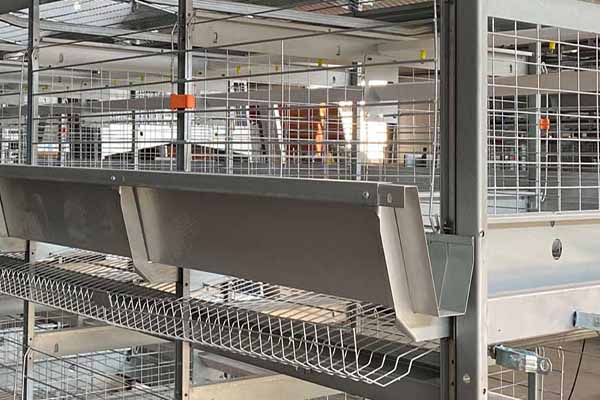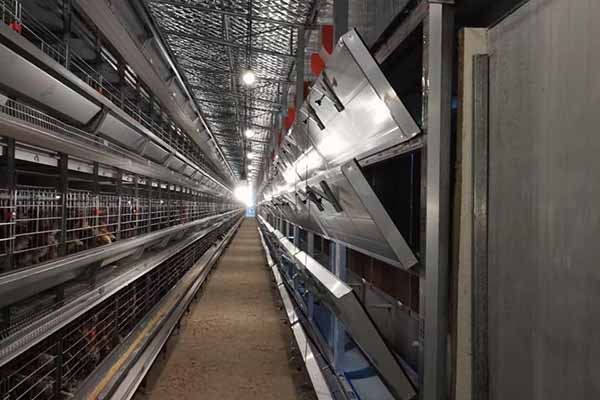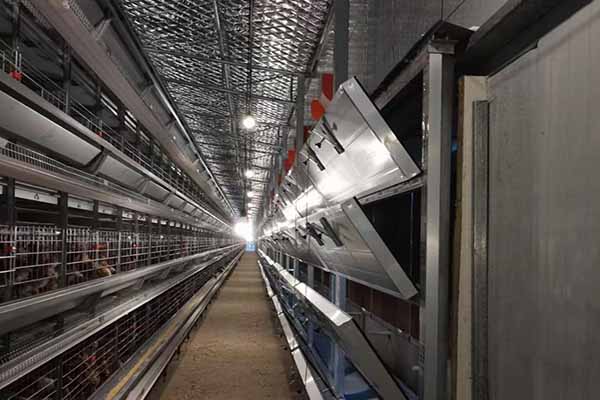Streamlining Tanzania’s Chicken Farming with Automation Equipment Installation Service
Time : 2025-07-01
In the rapidly evolving world of agriculture, Tanzania’s poultry industry is no exception to the advancements in technology. As the demand for high-quality chicken products continues to grow, so does the need for efficient farming practices. One such practice is the automation of chicken farming, which not only improves productivity but also ensures animal welfare. This article delves into the importance of automation equipment installation service for Tanzania’s chicken farms, providing a comprehensive guide to the benefits and considerations involved.

The Rise of Automation in Chicken Farming
The automation of chicken farming has become a pivotal trend in the industry. With the increasing need to meet global food demand and maintain high-quality standards, automation has become a necessity rather than a luxury. In Tanzania, the adoption of automation technology is gaining momentum, and it’s transforming the way chicken farming is conducted.
Key Benefits of Automation Equipment Installation
Automation equipment installation service in Tanzania’s chicken farms offers a multitude of benefits, including:

- Increased Productivity: Automation simplifies and speeds up various processes such as feeding, watering, and egg collection, allowing farmers to focus on other critical tasks.
- Enhanced Animal Welfare: Automated systems ensure a consistent environment for the chickens, reducing stress and improving overall health.
- Reduced Labor Costs: With automated systems, the need for manual labor is significantly reduced, leading to cost savings for farmers.
- Improved Data Collection: Automation allows for real-time monitoring and data collection, enabling farmers to make informed decisions.
- Energy Efficiency: Automated systems are designed to optimize energy usage, resulting in lower operational costs.
Selecting the Right Automation Equipment
Choosing the appropriate automation equipment is crucial for the success of a chicken farm. Here are some key considerations:
Feeding Systems
Automated feeding systems are essential for ensuring that chickens receive the right amount of feed at the correct time. Modern systems can be programmed to deliver feed according to the chickens’ age, weight, and nutritional requirements.
Watering Systems
Water is a critical component of chicken farming. Automated watering systems ensure a continuous supply of clean water, reducing the risk of dehydration and maintaining optimal health.
Egg Collection Systems
Automated egg collection systems are designed to minimize the risk of eggs being broken and to improve the overall efficiency of the process. These systems can be equipped with sensors to detect eggs and convey them to a collection point.
Environmental Control Systems
Environmental control systems are crucial for maintaining the ideal conditions for chicken growth. Automation allows for precise control of temperature, humidity, and ventilation, ensuring that chickens are comfortable and healthy.
The Role of Professional Installation Service
While choosing the right equipment is important, the installation process is equally critical. A professional installation service ensures that the equipment is set up correctly and operates efficiently. Here are some reasons why hiring a professional is beneficial:
- Expertise: Professional installers have the knowledge and experience to handle various automation systems.
- Quality Assurance: They ensure that all components are correctly installed and that the system is functioning as intended.
- Warranty and Support: Professional installers often provide warranty and support services, which can be invaluable in the event of technical issues.
- Compliance: They ensure that the installation complies with local regulations and standards.
Case Studies: Success Stories from Tanzania
Several chicken farms in Tanzania have successfully implemented automation equipment installation services. Here are a few examples of the positive outcomes:
Case Study 1: Smallholder Farm
A smallholder farm in Tanzania replaced their traditional feeding and watering methods with automated systems. As a result, they experienced a 20% increase in productivity and a 15% reduction in feed costs.

Case Study 2: Large-scale Poultry Operation
A large-scale poultry operation invested in an automated egg collection system. This led to a 30% increase in egg collection efficiency and a reduction in labor costs by 25%.
Conclusion
Automation equipment installation service is a game-changer for Tanzania’s chicken farming industry. By improving productivity, enhancing animal welfare, and reducing costs, automation is set to revolutionize the way chicken farming is conducted in the country. As the industry continues to grow, it is crucial for farmers to embrace automation and seek out professional installation services to maximize their benefits.











